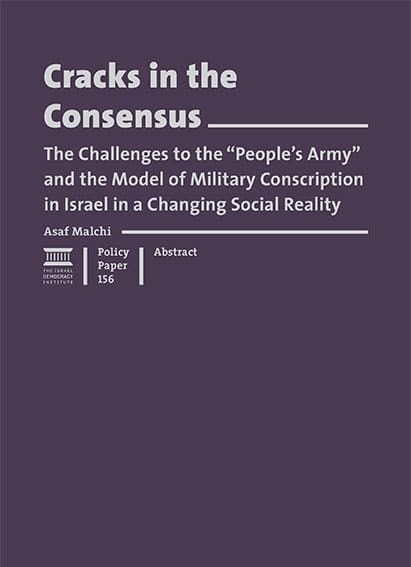Cracks in the Consensus
The Challenges to the "People's Army" and the Model of Military Conscription in Israel in a Changing Social Reality
- Written By: Dr. Asaf Malchi
- Publication Date:
- Center: The Joan and Irwin Jacobs Center for Shared Society
In recent years, compelling arguments are being voiced against Israel’s current policy of mandatory military conscription, highlighting (among other things) the inequity of the existing model, the economic inefficiency of conscripting population groups who are not suitable for military service, and the infringement on principles of liberty and individual freedom. Calls for substantial change to this model come against the backdrop of a continued decline in the percentage of eligible male conscripts who actually serve in the IDF ( just 69% in 2019).
Who are the political and other players who are actively challenging the existing conscription model? What are their opinions and arguments? What are the views of the diverse Israeli public regarding the preferred model of conscription?
These questions and others are at the heart of the discussion in this study. The study findings indicate growing demands from groups on Israel’s social and civic margins for a gradual phasing out of the mandatory conscription model. These demands are reaching closer and closer to the heart of the country’s political and social leadership, which continues to maintain strong support for the current model.
In light of the objections being raised by more and more groups in Israeli society to mandatory military service, it appears that it will be difficult to maintain the legitimacy of this model. Thus, there are questions to be dealt with on whether and how, the country’s political leadership and the IDF will prepare for the ideological, social, and cultural changes affecting Israeli society and its attitude toward the IDF and mandatory conscription.

